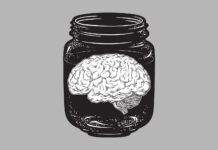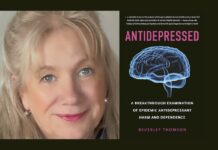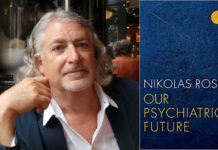Medicating Preschoolers for ADHD: How “Evidence-Based” Psychiatry Has Led to a Tragic End
The prescribing of stimulants to preschoolers diagnosed with ADHD is on the rise, which is said to be an "evidence-based" practice. A review of that "evidence base" reveals that claims that ADHD is characterized by genetic and brain abnormalities are belied by the data, and that the NIMH trial of methylphenidate in this age group told of long-term harm.
The Nurtured Heart Approach Goes Mainstream: Research and Experience Support “Celebrating Greatness in Every...
The Nurtured Heart Approach represents a massive shift in thinking—about schooling, about children and how to raise them, about how we regard those with intensity, and about the medical model pathologizing them.
Branding Diseases—How Drug Companies Market Psychiatric Conditions: An Interview with Ray Moynihan
MIA’s Ayurdhi Dhar interviews Ray Moynihan about the marketing of disorders, broadening of diagnoses, and harmful treatments.
The WHO Calls for Radical Change in Global Mental Health
The World Health Organization newly published guidance for community mental health urges an end to forced treatment and the adoption of person-centered and rights-based services.
NIMH’s It-girls: The Genain Quadruplets and the Whiteness of Psychiatry
The poster-children of psychiatric genetics, who endured abuse throughout their lives, were also the product of a racist culture.
John Read and Jeffrey Masson – Biological Psychiatry and the Mass Murder of “Schizophrenics”
On the Mad in America podcast this week, we hear from the co-authors of a paper published in the journal Ethical Human Psychology and...
A Revolution Wobbles: Will Norway’s “Medication-Free” Hospital Survive?
We interview Ole Andreas Underland, Director of the Hurdalsjøen Recovery Center in Norway which provides “medication-free” care for those who want such treatment or who want to taper from their psychiatric drugs. Ole Andreas explains why the success of this pioneering approach might threaten its future.
Psychiatry’s Nightmarish 2022 & Its Hysterical Defense Against Criticism
Psychiatry's defenders are open to criticism of psychiatry as long as it stops short of acknowledging the increasingly well-documented reality that psychiatry lacks any scientific merit.
Thomas Szasz Versus the Mental Health Movement
Unbiased experts must examine the claims and research of psychiatry and issue a report as to whether psychiatry not only has a valid medical basis, but whether this basis justifies the widespread violation of medical ethics and the routine use of imprisonment and torture.
Music Aids Mental Health: Science Shows Why
What can science tell us about music’s impact on our cognition and on our mood, on our capacity for empathy, and our sense of connection with others? How does it change the brain? How does it change us?
Why Failed Psychiatry Lives On: Its Industrial Complex, Politics, & Technology Worship
By embracing the widely popular technology-worship “religion,” psychiatry is permitted to ignore the reality that its repeated failures are evidence that its fundamental paradigm is misguided.
Causality in Mental Disturbance: A Review of the Neuroscience
Psychiatry's medicalization of social and psychological suffering is not justified by the currently known biology.
Answering Awais Aftab: When it Comes to Misleading the Public, Who is the Culprit?
The research literature from the WHO, NIMH, and others does not support a narrative of therapeutic progress, of psychiatric treatments that have “continued” to improve over time.
William Styron: His Struggles with Psychiatry and Its Pills
Author William Styron is often remembered for speaking about depression as an illness. But a review of his life reveals that psychiatric drugs may have triggered and even worsened his depressive episodes.
Summing up the STAR*D Scandal: The Public was Betrayed, Millions were Harmed, and the...
American psychiatry, the NIMH, the larger medical community, and mainstream media have betrayed the American public by failing to make this scandal known.
Beverley Thomson–Antidepressed: Antidepressant Harm and Dependence
We talk with author Beverley Thomson about her latest book, entitled Antidepressed: A Breakthrough Examination of Epidemic Antidepressant Harm and Dependence.
How Culture Influences Voice Hearing: An Interview with Stanford Anthropologist Tanya Luhrmann
Ayurdhi Dhar interviews Tanya Luhrmann about cultural differences in voice-hearing, diagnosis and damaged identities, and conflicts in psychiatry.
“Never Look on the Dark Side”: The Science of Positivity from Early Eugenics to...
The "science" of happiness has always been inextricably linked to eugenics. Modern positive psychology, with its focus on genetics and willpower, is no different.
Psychiatry’s Cycle of Ignorance and Reinvention: An Interview with Owen Whooley
Ayurdhi Dhar interviews sociologist Owen Whooley about psychiatry's stubborn perseverance in the face of recent DSM embarrassments and the failures of the biomedical model.
Psychiatry and the Selves We Might Become: An Interview with Sociologist Nikolas Rose
MIA’s Ayurdhi Dhar interviews the well-known sociologist of medicine, Nikolas Rose, about the role psychiatry plays in shaping how we manage ourselves and our world.
The Rise of the Digital Asylum
The digital pill Abilify MyCite, which is now being introduced into the market, foretells of a future where such technology is used to monitor the behavior, location and "medication compliance" of a person 24 hours a day.
Learning a Different Way: An Interview with Maori Psychiatrist Diana Kopua
MIA’s Ayurdhi Dhar interviews Diana Kopua about the Mahi a Atua approach, the global mental health movement, and the importance of language and narratives in how we understand our world and ease our suffering.
Chemically Imbalanced: Joanna Moncrieff on the Making and Unmaking of the Serotonin Myth
Joanna Moncrieff joins Robert Whitaker to talk about her latest book, titled Chemically Imbalanced: The Making and Unmaking of the Serotonin Myth. They discuss the serotonin story and the fact that there is no good evidence that a serotonergic deficiency is a primary cause of depression.
“Holy Shit!” Psychiatry’s Cognitive Dissonance on Display
Even those who would seek to reform the profession of psychiatry cannot confront the reality that exists in the research literature
SSRIs, Lindsay Clancy, and Me
Sharing the similarities between Lindsay Clancy's homicidal episode and my own will hopefully help prevent rare SSRI-induced suicides and homicides, including mass shootings.

































